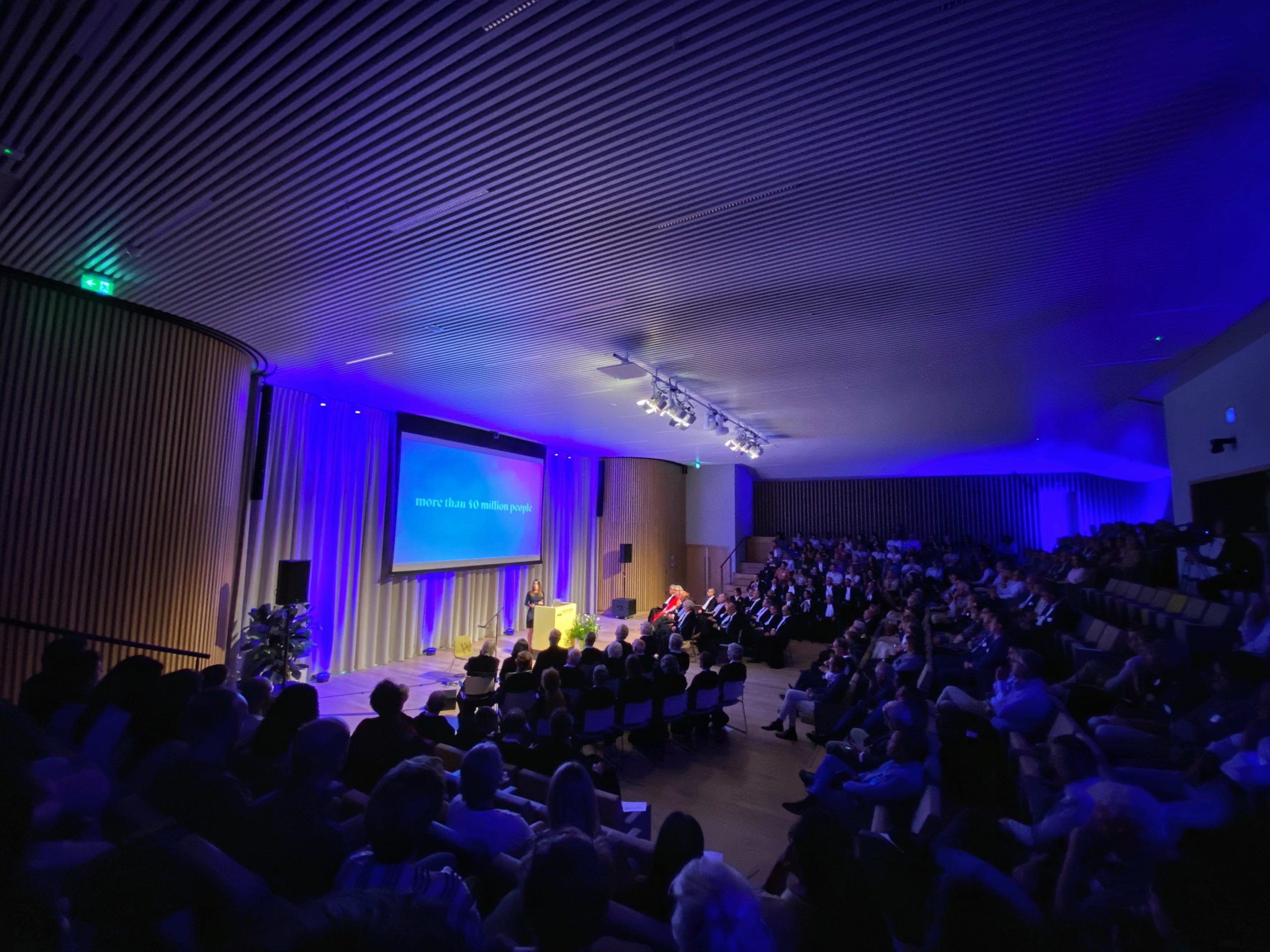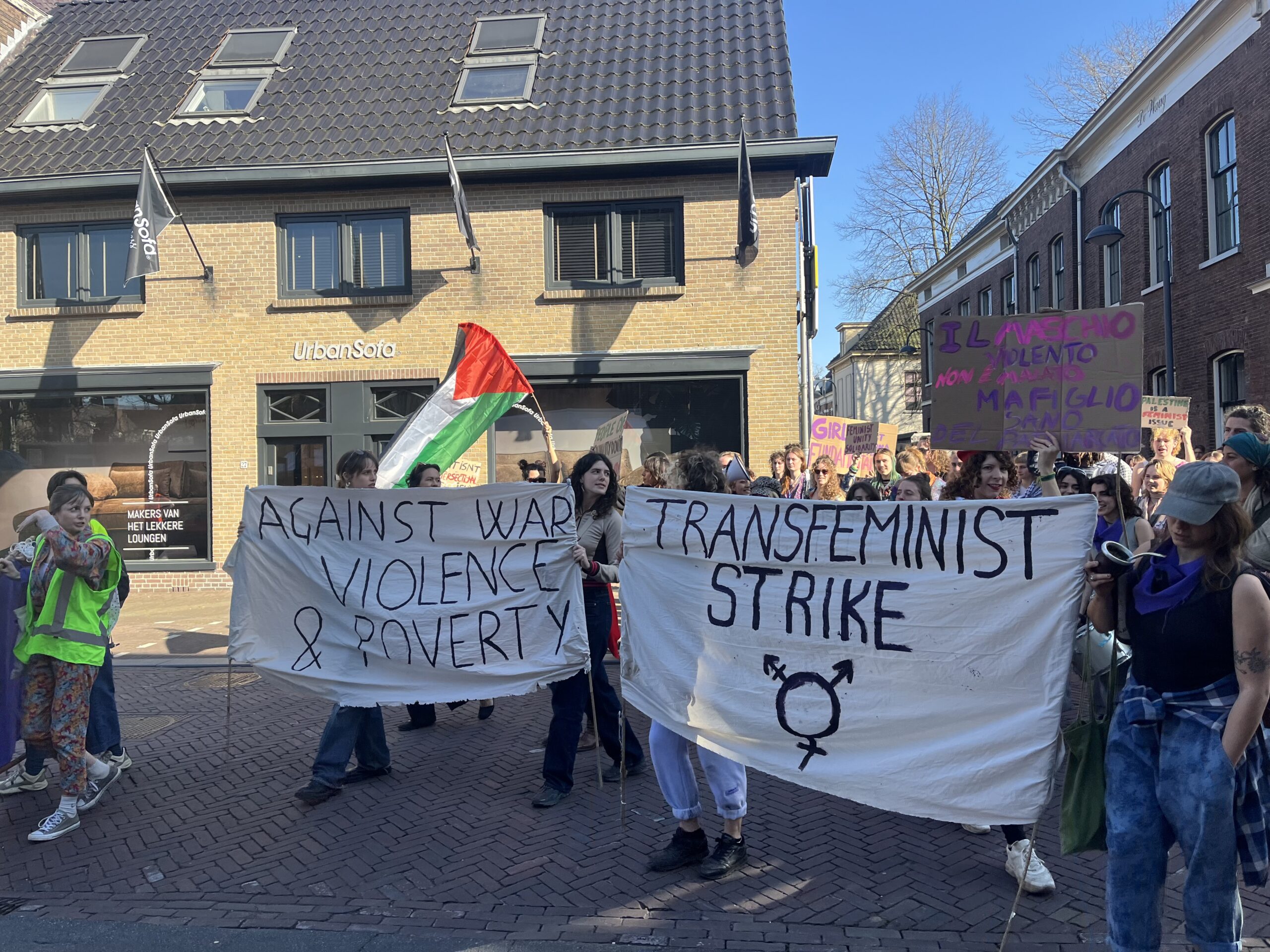The message of the opening of the academic year (OAY) 2023 in Omnia was crystal clear: Climate change is visible to us all, and humanity must act now before we reach the point of no return. Wageningen calls for action.
Anyone who has not followed the developments at WUR over the past two years or so would have viewed the proceedings in Omna yesterday with a frown, at the very least. Board president Sjoukje Heimovaara opened the afternoon by saying that humanity must act now before we reach the ‘tipping point of no return’. Combatting climate change and biodiversity loss is one of Wageningen’s tasks, she stated. Greenhouse gas emissions and land and water use are part of the domains in which WUR conducts its research. ‘It is our job to prevent further damage.’
At the same time, students protested outside Omnia, Heimovaara said. ‘They are worried and are speaking up; in here, three speakers will also make themselves heard.’ The three speakers she referred to were Ken Giller, Ingrid de Zwarte and Jeroen Candel; they were to substantiate this year’s message. ‘The solutions are available’, according to Heimovaara.
The soon-to-be-retired professor of Plant Production systems Ken Giller concluded his address with the question of how we may prevent science from falling into the hands of populists. ‘First, we must move away from simple and false dichotomies. There is no good or bad. There is no room for dogmas in science, which thrives on differences in opinion. Furthermore, we must ensure there is an open and safe environment with room for intense dialogue and debate. An environment in which every voice is heard. Scientists must communicate in a simple manner but without simplifying issues. The world is complex, but we are uniquely able to include society at large in challenging issues.’ In the competitive world of science, where funding of projects is a major issue, we see scientists hop on bandwagons to accept funding for questions that have been wrongly framed.
I believe that we in Wageningen must take on an active role
Ingrid de Zwarte
Assistant professor of Agricultural Environmental History Ingrid de Zwarte guided the listener through a history of famines that are fundamentally caused by politics and conflicts. ‘Famine can be prevented. A lack of food does not result from population growth, natural disasters or economic crises. Famine is caused by humans. Either purposely or by a failure to prevent it. Consider, for example, the Soviet Union at the onset of the thirties of the last century, of the winter famine in the Netherlands during the Second World War.’ Humanity has the technical means to feed the growing world population, De Zwarte says. ‘The challenge lies in achieving this without harming the climate. The so-called threat of famine may never be used in public and political debates to delay urgent sustainable transitions. But technical solutions alone are not enough. We need politicians to prevent new famines. I believe that we in Wageningen must take on an active role. As scientists, as students, as teachers, and as world citizens. By disproving myths and by calling for change. Together, we can achieve the much-needed political actions to ensure famines are a thing of the past.’
Associate professor of Public Administration and Policy Jeropen Candel, who chatted with the student protestors before the start of the event – ‘those are the students I value, the ones that care’- concludes his address with a petition. ‘The European Commission’s Farm to Fork strategy is a first step toward a collective European food policy but has sadly met with considerable resistance from member states and the food lobby. Many countries appear more driven by short-term private interests than by what serves humanity best in the long run. The good news is that food and agriculture are more prominently positioned on the agenda than ever, a precursor for great changes in policy. We are truly at a crossroads. Everyone can make a difference. The Green Deal, an ambitious set of policy initiatives to make Europe climate-neutral that was presented by the European Commission, is in part the result of climate protests across Europe. The Extinction Rebellion protests have put subsidies for the fossil industry on the agenda. Making yourself heard works. So, join a political party, protest and speak up. Only if we make our voices heard will politicians get involved and work on a sustainable future. But always remain open to new perspectives.’
Once the proceedings have concluded and snacks are served during the reception, Heimovaara responds with modesty when Resource states that Wageningen’s tone has changed since her arrival. ‘These speakers were doing their work and had their opinions before I came.’ But who decides who gets to speak at an event such as this? A brief silence follows while she eyes the crowd. ‘Ultimately, I do.’

 Photo Resource.
Photo Resource. 

